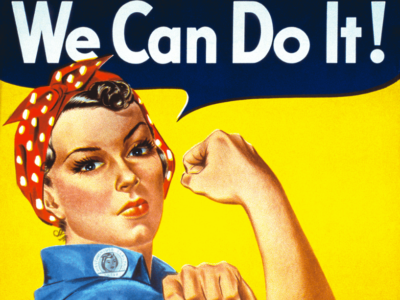I grew up in a small town in Eastern Kentucky. I was the only one in my elementary school who didn’t go to church. Every person in my graduating class was white except one. A school board employee led a public prayer at the beginning of my graduation ceremony. In this kind of place, feminism barely exists. Women accept their roles in the home and church as primary over working. My parents, bless their hearts, raised two independent and hard-working young women who never accept their place anywhere, including the tiny, rural hill town some spend their entire lives.
When I left my small town on the Ohio River to attend school in Lexington, I finally felt far away from the small mindedness that had surrounded me. I expected to encounter hundreds of like-minded, tolerant people. I wanted, at the very least, a level of respect and value for women that doesn’t always exist where I’m from. Instead, I quickly learned I couldn’t run away from intolerance and ignorance just by getting out of Eastern Kentucky, and I couldn’t have been more disappointed. I didn’t just want to run away from the boxed-in life most women I knew lived in—I wanted to fix it. I sought to help my friends understand that the women they know and care about are disregarded by our government when it comes to both their healthcare, paychecks and more.
When I got to college, I anticipated to always act as the woman my mother raised me to be: independent, confident and oozing with self-respect. I saw myself as someone who would mature and be determined to take her education for granted. I actively disappointed myself every day, and I couldn’t figure out why. I wore whatever I could put together from my modest high school wardrobe, making me desirable to every frat guy at parties where I didn’t know anyone except for the girl I just met from down the hall.
Some college guys treat freshman girls like an all-you-can-f–k buffet. And a lot of college girls accept their roles unwittingly and without a second thought. I tried to drink as much as they did. I slept with the juniors that made the pledges wait on me, and then the pledges themselves. I entered an entirely new environment and witnessed so much societal acceptance coming to the “hot” girls who let guys take shots from their cleavage and write Greek letters on their asses to sit on a Yeti cooler, that I almost didn’t realize how college culture devalued women. I never imagined this level of encouraged objectification before, and I absolutely never expected to give in to it.
One night this summer, I returned from the bar with the friends I went with and some of their friends we ran into. The two new guys, maybe 22 or 23 years old, seemed like genuinely nice people. As conversations tend to do around these hot times, we steered toward talking about the election. We expressed conflicting opinions regarding things like assault rifles before the more talkative of the two guys brought up the matter of inequality and its lack of existence in our country.
But he had excuses for his bigotry. Having grown up in a small town in Western Kentucky, he claimed his lack of exposure to people of any race besides white justified his skepticism of them. My friend Kristen, a proud woman of black and Hispanic parents, and I attempted to reason. I mean we really, really tried. We insisted that he lives in the incredibly diverse city of Lexington, home of the University of Kentucky, and could easily gain the exposure he needed to learn to accept people. “Now you’re just thinking like a girl,” he said.
Naturally, I left immediately afterward. I couldn’t stop thinking about what he said. As if my thoughts were less valid because I’m a woman. As if speaking in defense of all human beings is “thinking like a girl.” As if “thinking like a girl” is negative at all. As if not only are my thoughts invalid because I’m a girl, but because they’re the presumed opinions of only girls—invalidating them even further.
As I sat on my couch and watched Hillary Clinton secure the nomination for president, every time I ever defended myself as a woman mattered a little more. Every naked picture I said “no” to made me a little more proud. Every friend I argued with about gender equality, every tweet or post I’ve shared about oppression of females, every time I insisted that women have yet to break the glass ceiling gained a little bit more meaning now that we actually almost have. Everyone who’s ever mistaken a proud feminist for a crazy b-tch became less significant now that we’ve actually made a difference.
And after a semester of trying to be the “hottest chick” out there and two years of reality checks, I started speaking up for myself and other women more. I’m now a confident, motivated, badass woman who, in my first year of college, was entirely lost.



















